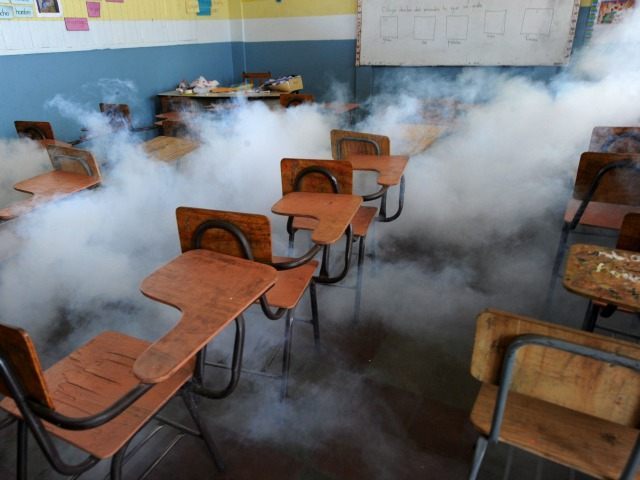Gennady Onishchenko, former head of the Russian Federal Service for Surveillance on Consumer Rights Protection (Rospotrebnadzor) and former chief sanitary doctor of Russia, told the BBC he believes the United States is involved in the widespread presence of Zika virus worldwide.
“Why am I still worried about the Abkhazian coast, which houses the mosquito?” asked Onishchenko. “It worries me because somewhere the 100 kilometers (62 miles) from the place where this mosquito lives today is a military microbiology laboratory of the United States Army.” The laboratory was built to help combat measles, a reasoning Onishchenko rejects.
He added: “The presence of American laboratories and the presence of the mosquito, I am concerned about in terms of deliberate interference in the natural course of epidemic process. It dramatically increases the possibility that mosquitoes may be deliberately contaminated.”
The U.S. Defense Threat Agency (DTRA) built the labs in 2011. The Pentagon gave the laboratory to the Georgian National Center for Disease Control in 2013.
Radio Free Europe/Radio Liberty reported that Onishchenko “showed a fondness for conspiracy theories” when he held office as sanitary doctor and head on the watchdog group. He commanded “several politically charged bans on foreign products,” including wines from Georgia and Moldova and the import ban of produce from the European Union.
Russia documented its first case of Zika after an unnamed woman returned from a trip to the Dominican Republic.
“The person with the virus is currently at an infectious diseases hospital, her condition is satisfactory,” declared Rospotrebnadzor, the Russian consumer watchdog group. “Medical observation of family members was established, no clinical manifestations of the virus were registered among them, and they tested negative for the Zika virus.”
Onishchenko did not say if the government should ban travel to the Dominican Republic or other areas with the Zika virus.
“Well, was it really necessary to travel to the Dominican Republic? Probably not,” he answered.
Aedes aegypti mosquitoes carry Zika virus. While primarily found in Africa, all but two nations in the Western Hemisphere – Chile and Canada – have recorded populations of the mosquito species living there. Researchers found the mosquito in Sochi, located on the Black Sea. The scientists recommended the country implement control measures “to reduce the possible risks of importing exotic vector-borne infections, such as dengue and chikungunya.”
In late January, Russian President Vladimir Putin ordered Russian scientists to develop a vaccine for the virus. The scientists hope to patent one by March.
Russian Health Minister Veronika Skvortsova said the country wants the vaccine because officials desire “a full inventory of vaccines” and to ship it to countries impacted by Zika.
Experts believe a fully legalized vaccine is still a decade away. Researchers hope, though, to have an emergency vaccine by the end of the year.
“This vaccine is easy to produce. It could be cranked to very high levels in a really short time,” said Canadian scientist Gary Kobinger.
Two groups currently working on the vaccines want to begin human testing in August. Kobinger anticipates the human tests will be good enough for governments to “allow the use of it in emergency situations.”
On Friday, Brazil and the University of Texas signed an agreement to develop a Zika vaccine. Brazilian Health Minister announced the government will devote $1.9 million to the research.

COMMENTS
Please let us know if you're having issues with commenting.